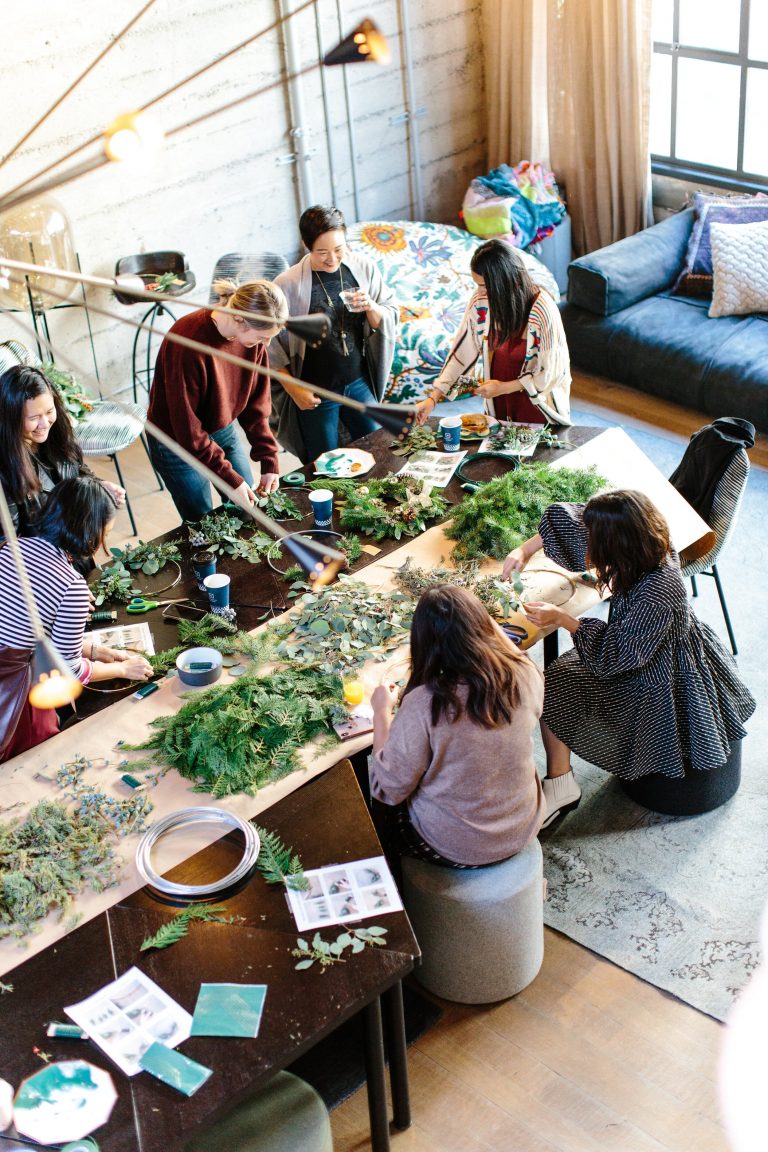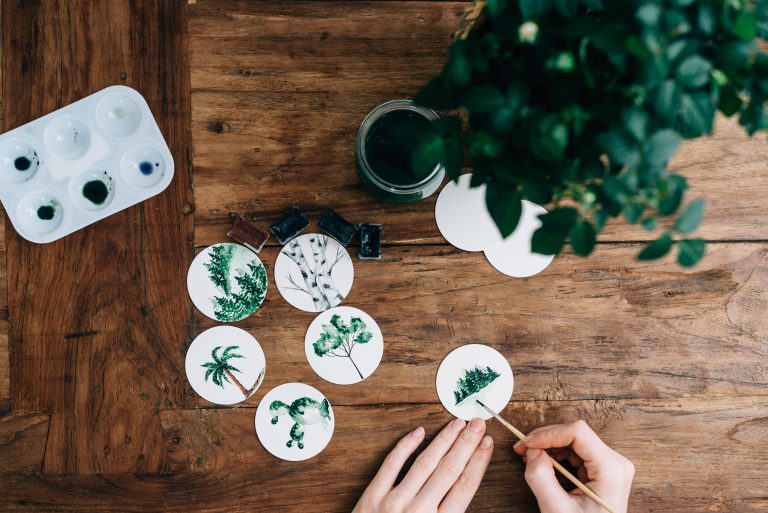Workshops, whether online or in person, have become big business in the past few years. It’s wonderful how so many creative people are willing to generously share their knowledge and expertise with others and in an affordable way. Back when I started my business, if you needed training in something it meant an expensive course or night class at a local college, but now we have the opportunity to attend workshops on a whole manner of topics, learning for business progression or simply for fun.
If hosting workshops has become part of your own offering, you’ll know it is all about marketing when it comes to attracting attendees, which can be a challenge in itself. We invited expert brand and marketing consultant Aime Cox-Tennant of the fabulous Studio Cotton in Bristol to share her top tips on how to reach the right people for your creative workshops…

I am a total workshop fiend. I’ve spent many a Saturday afternoon decorating cakes, crocheting baskets, sculpting clay, arranging foliage and knitting around 10% of a bobble hat. I’ve resigned myself to never mastering a purl stitch.
Through my small business marketing agency, Studio Cotton, I support heaps of creatives who run regular workshops. I also run my own events, covering branding, websites and marketing. Or at least, I did – until that pesky pandemic got in the way.
Now with the world reopening and creatives getting the chance to scratch that workshop itch, it feels like the perfect time to share my seven transformational tips for marketing your creative workshops.
TIP 1: Understand what your customers are buying
You are selling workshop tickets. You might even be selling that thing you make in your workshop.
Your customers are buying a Christmas present for Aunty Geraldine. They’re buying a unique activity for a rare afternoon with their best mate Fi from uni. They’re buying some face-to-face time with an expert who can help them understand that sewing kit their mum got them over lockdown. They’re buying an opportunity to learn something new. They’re buying a moment to meet new people because they moved to a new city and are feeling lonely.
Workshop facilitators often get so focused on describing a three hour session, that they forget to focus on their customer and what will be motivating their purchase.
Switching from an I’m Selling to They’re Buying mindset gives you the best possible chances of a customer spotting your event and thinking “A-ha! That’s exactly what I’m after!”
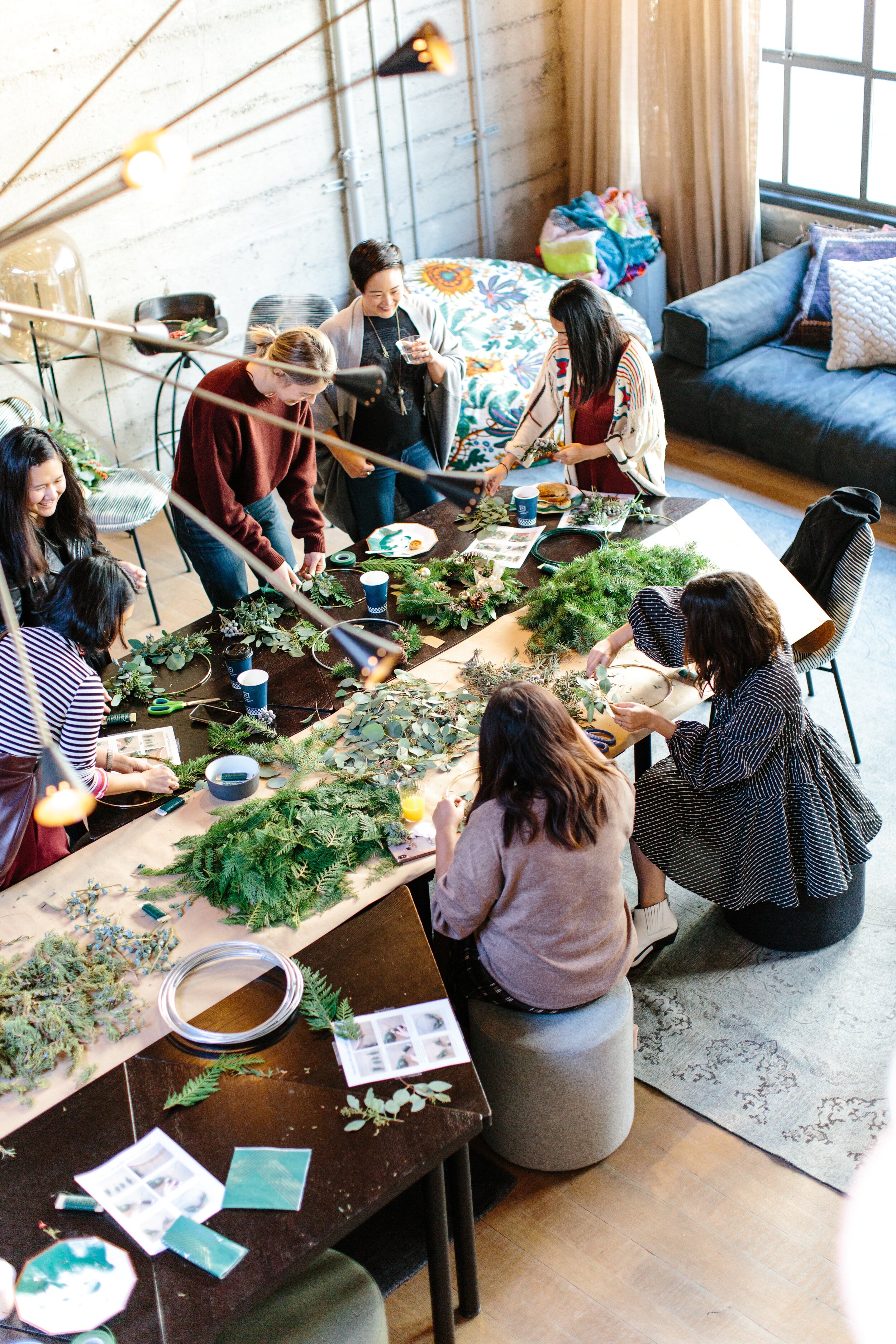
TIP 2: Define your workshop agenda
A lot of marketing is around setting customer expectations so that you can meet them, or even better, exceed them. The best workshops – be them craft, small business, wellbeing or anything else – have a clear agenda. A preplanned beginning, middle and end. We’re not talking about those stuffy corporate meeting agendas, just a rough outline of events, like:
- 10 – 10:15: Meet, mingle, lovely lattes
- 10:15 – 10:30: Plan your project
- 10:30 – 11: Learn techniques
- 11 – 12: Practical – trying out what you’ve learnt
- 12 – 12:30: Finish up, Q&A
Not only does this give you a great tool for breaking down how much value is included in your event, but it helps you to keep your workshop on time. It’s not unusual for workshops to run over, some people love the extra chillaxing time with a qualified mentor. However, the last thing you want is to leave Aunty Geraldine feeling a bit flustered when she has to run out before everyone else because she said she’d give Archie a lift home from town at 12:45.

TIP 3: Write a long and juicy event description
Compared to event descriptions, writing a kick-ass physical product description is as easy as delicious banoffee pie. You give a reason to buy, describe an item’s characteristics, and link them to some specific benefits. Boff, done.
Writing a tip-top event description is not quite so simple. There are a lot more variables that come into play, and way more unasked questions and queries from your audience that leave them unready to purchase. Things like, “is this ok for beginners?”, “I don’t know where I’d park on that side of town”, or “what if the person running it is an amateur?”.
That’s why it’s crucial that you write a thorough event description to address your customers’ concerns before they even get a chance to think ‘em.
Here are my essential ingredients for the juiciest of event descriptions:
- A two-sentence sales pitch
- Full event description, including agenda
- What’s included (e.g. materials, tools)
- What you’ll take home
- Who is it for
- Refreshments
- About the host
- About the venue
- Accessibility
- Transport
- Contacting the host
- Restrictions
- Cancellations and refunds
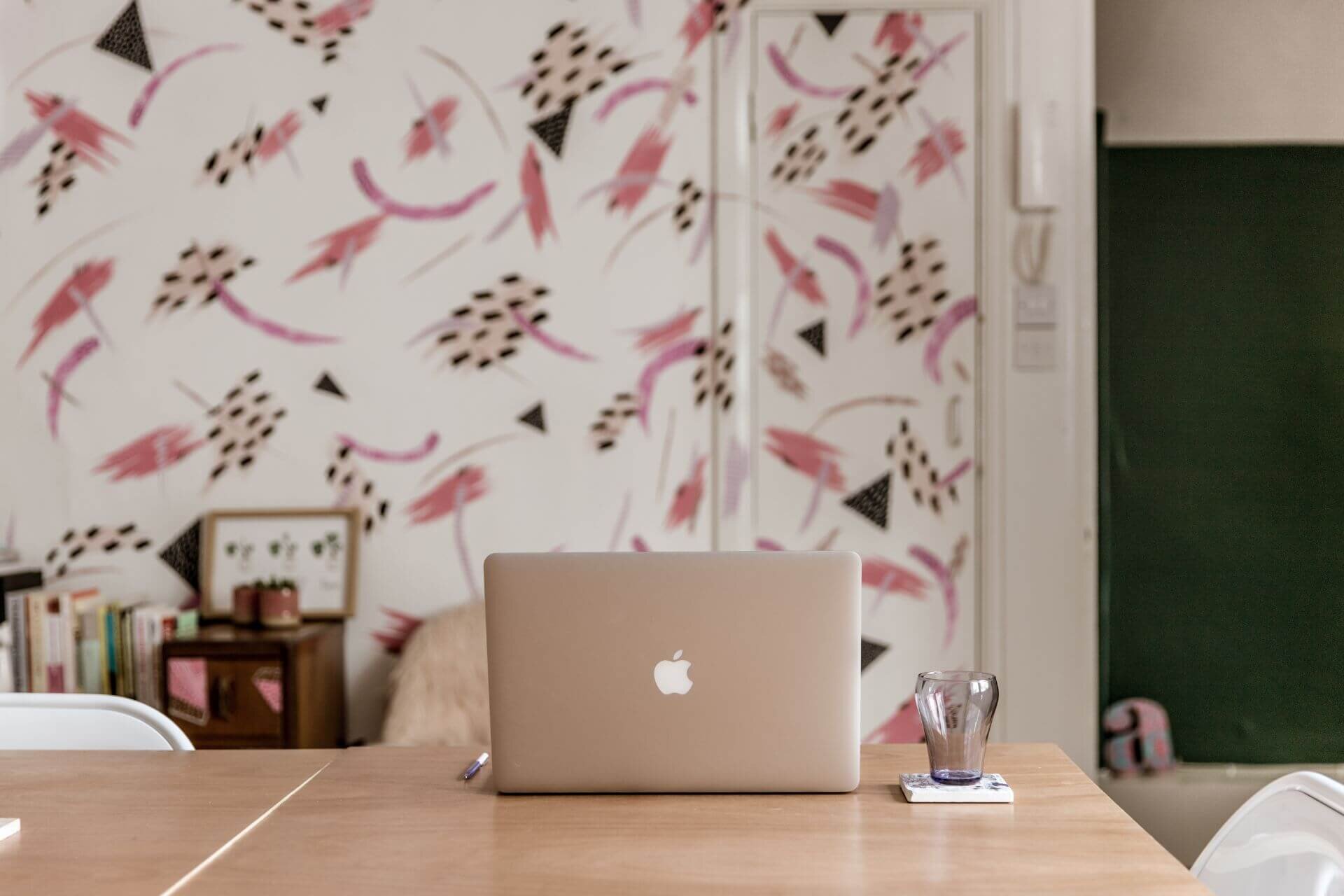
TIP 4: Set a price that reflects the workshop experience
You know when a price is like, suspiciously cheap? You start making assumptions like “oh it can’t be that good” or “it probably wouldn’t make a very nice gift”. It can sound counter intuitive, but sometimes charging a higher price sells more creative workshop tickets. This is particularly true for gifted and celebratory workshops; your customer is looking for something special. If you’re selling creative and craft workshop tickets on the run up to Christmas, this is the advice you need.
There are a few key price points when it comes to gift giving:
- £10 – £15: A birthday present or stocking filler
- £25 – £30: A buddy
- £50 – £60: A bezzie
- £80 – £120: A blowout
It’s a good idea to see if you can price your creative workshop tickets – or a pair of tickets – in one of these boundaries. However, instead of arbitrarily upping your ticket price, look into the small ways you could add value. Things like upgrading biscuits to a locally-baked cake, or switching to a wow-worthy venue.
TIP 5: Offer different ticket options
Early bird ticketing is a tried-and-tested technique for increasing early sales. It utilises two of selling’s biggest drivers:
- Urgency; the need to take action before a deadline and
- Scarcity; the need to take action before something runs out
At Studio Cotton, we experimented with another special ticket type, the Buddy Bird. Buddy Birds allow anyone to enjoy that wonderful early bird price at any time – as long as they’re purchasing more than one ticket. This option can prompt your customer to start thinking about who they want to bring to your creative workshop for a delightful experience and a tidy saving.

TIP 6: Embrace an event ticketing marketplace
I encounter a lot of reluctance to sell creative workshop tickets on event ticketing marketplaces like Eventbrite. Most of the concerns revolve around their fees – which I get, it is definitely cheaper to sell tickets directly through your own website or via DM on Instagram.
But in my opinion, that fee can be an absolute ruddy bargain for the amount of value you get. Using event ticketing market places give workshop facilitators access to a huge audience of potential customers, some lovely search engine optimisation (SEO) pull, marketing support within their own communications and supplementary advice.
As a perfect anecdotal example, a bezzie of mine and client of Studio Cotton, Sophie Moloney of MoloneyMakes spent 6 weeks promoting a bobble hat workshop via her social media accounts with frustratingly little uptake. With a not-so-gentle nudge, Sophie listed her knitting workshop on Eventbrite and sold a pair of tickets before she woke up the next day.
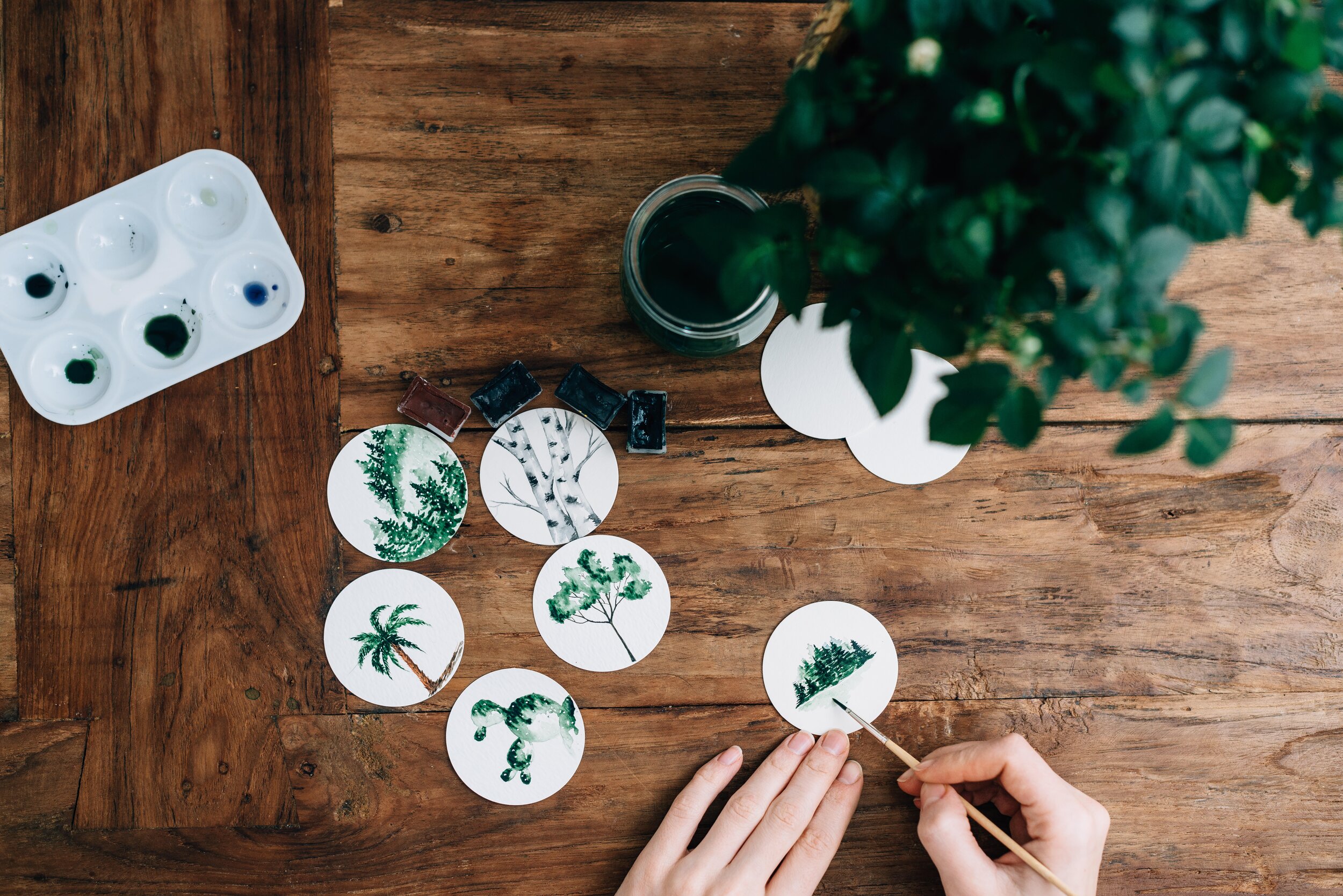
TIP 7: Turn your crEATIVE workshop into future opportunities
It’s the day of the creative workshop, you’re done selling and your customers are done buying. Now it’s time to host the loveliest of events, and then chill out max and relax all cool. Except, with a few extra little items on the to-do list, we can use this creative workshop to support your creative small business.
- Take photos or your event, your attendees (with permission) and their makes/results
- You could even bring in a professional photographer if you’re looking to do more events in the future, or to commemorate a special creative workshop like a hen do
- Give your customers a discount code or upgrade on a future event or product from your shop
- Give your customers details for how to buy the tools or materials they used (preferably from you!)
- Send a follow up email to thank them for their time, and ask for a honest review on Google My Business
- Encourage your customers to share photos on Instagram, and to tag your business
- Use your workshop photos and testimonials to promote future events
And that’s my seven transformational tips for marketing a creative workshop. Now pop these nuggets into practice and enjoy the very best Saturday afternoons with Aunty Geraldine, Fi from uni, and a whole host of wonderful creative workshop lovers!
